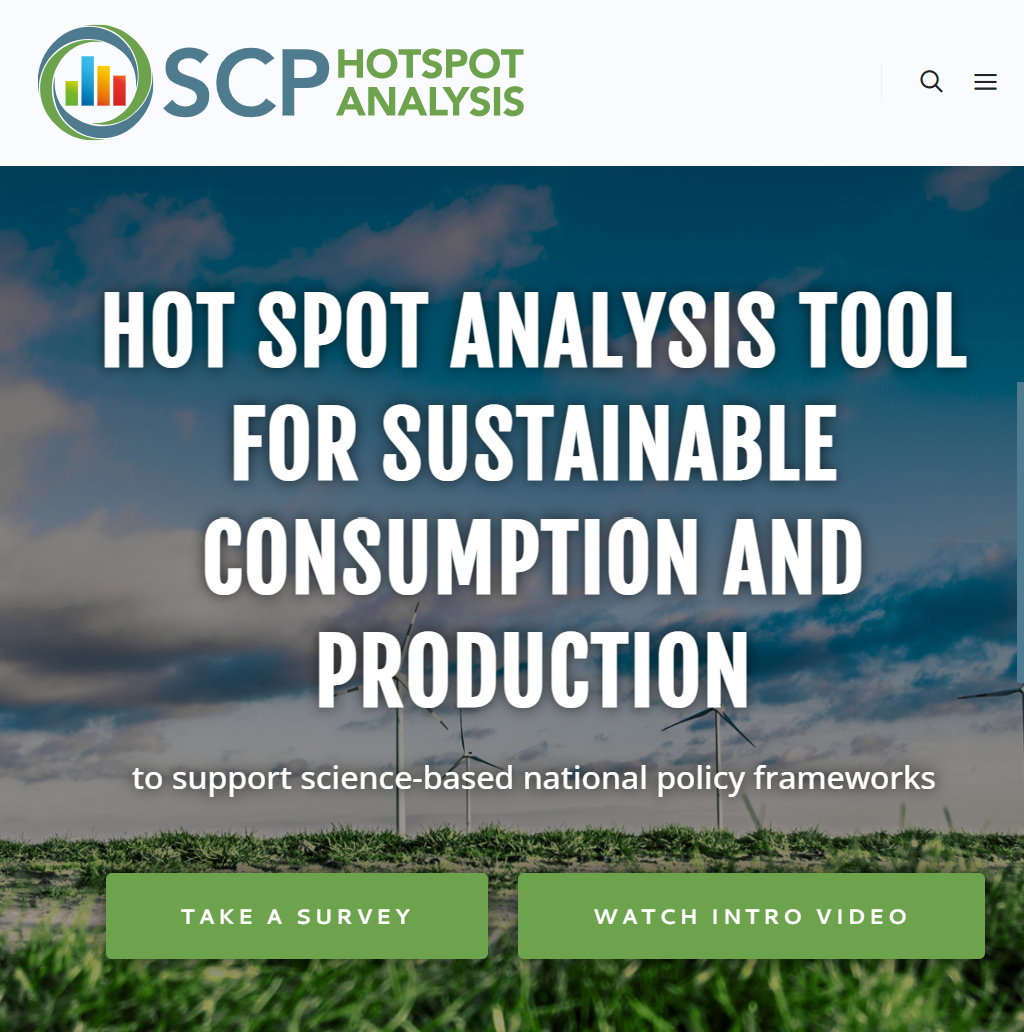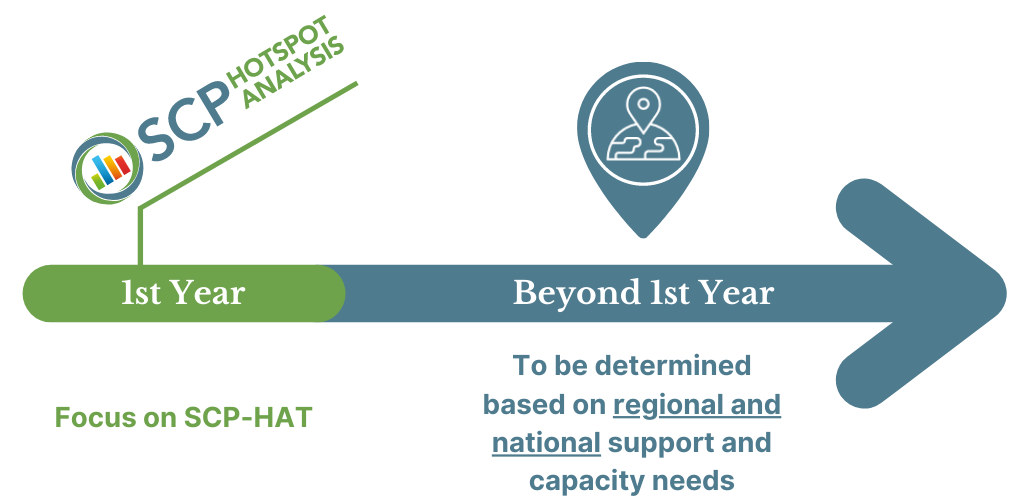
The Regional Science Partners for SCP in Africa, Asia-Pacific, Latin America, is a commitment to enable science-driven approaches for effective and impactful sustainable consumption and production interventions.
Through this Partnership, leading scientific institutions will support national governments and other stakeholders in the regions with contextual and targeted scientific evidence for decision- and policymaking.
This effort is led by the One Planet network and Life Cycle Initiative, in collaboration with Go4SDGs, UNEP Regional Offices, and the UN Economic Commissions (UNECA, UNESCAP, UNECLAC), and supported by the International Resource Panel, WU Vienna and CSIRO. The first year of the Science Partners will focus on the use of the SCP Hotspot Analysis Tool (SCP-HAT) for identification of impactful hotspots for SCP interventions.

Scientific data and knowledge are key in effectively implementing SCP and addressing the triple planetary crisis. Scientific data, analysis and tools help identify the most impactful solutions and thereby facilitate evidence-based strategic planning and decision-making.
To respond to this growing demand for technical support and capacity building for the SCP HAT tool, UNEP has established a network of scientific and technical partner institutions in all regions with the objective of creating a global partnership aimed at strengthening the science-policy interface on SCP through the up-take and mainstreamed application of the SCP-HAT and other scientific tools and resources in countries.
The scientific and technical partner institutions who join this partnership are acknowledged as “Science Partners for SCP” and will, following a “train-the-trainer” process, function as key knowledge centres in their regions for science-based and data-driven SCP support.

The Sustainable Consumption and Production Hotspot Analysis Tool (SCP-HAT) is an online entry level assessment tool for environmental pressures and impacts at the national and sector level which offers a territorial and footprint perspective for identifying priorities for SCP policy efforts.
The power of this tool therefore lies in identifying hotspots for pressures and impacts across the economy where critical action is needed to achieve sustainable development.
The SCP-HAT makes it possible to conduct comparative analysis at national, regional, global and sectoral levels on the basis of internationally established and recognized data sources, making it a very useful policy tool.
Several countries have already started using the tool in the context of their Nationally Determined Contributions (NDCs) and the demand for technical support and capacity-building has been growing to exploit the full potential of the SCP-HAT in the design and implementation of science-based national strategies aimed at addressing hotspots of unsustainable consumption and production.
Who are the Regional Science Partners?
Asia-Pacific
Latin America
Africa
How can the Regional Science Partners for SCP support national and regional stakeholders ?
The purpose of the Regional Science Partners for SCP in the initial stage of this partnership will be to support the use of the SCP-HAT for science-driven policy-making at country and regional level, in collaboration with UN agencies in the region, including GO4SDGs, UNEP Regional Offices and the UN Economic Commissions. Beyond the first year, the focus of the Science Partners for SCP will be re-evaluated and determined based on the regional and national support and capacity needs observed.

Role of Science Partners in the 1st year: “Focus on the SCP Hotspot Analysis Tool to support an effective shift to SCP policies”
-
Fostering the SCP-HAT and its applications at the regional and national level, including outreach through key regional and national fora
-
Providing capacity-building and technical advice to diverse target audiences, including support to countries in developing SCP-related policies using SCP-HAT and other science-driven tools
-
Reporting on activities as a Science Partner for SCP regularly, including inputs for concrete improvements of the SCP-HAT tool
EVENT LAUNCH
The launch of the Science Partners for SCP was on 1st of June 2022.